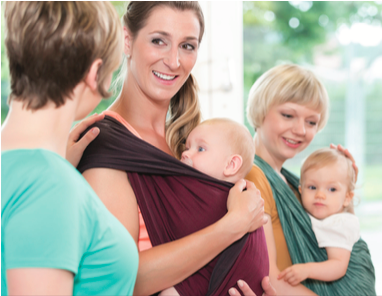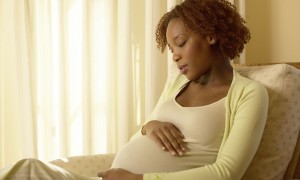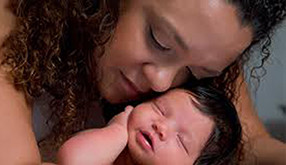Maternal Child Health

Giving moms and babies a healthier future is a priority of the Greater Lowell Health Alliance and its Maternal/Child Task Force.
Join us in creating a better future for all.
Who We Are
 The mission of the Maternal/Child Health Task Force is to bring together key stakeholders to address the most pressing health issues related to moms and their families.
The mission of the Maternal/Child Health Task Force is to bring together key stakeholders to address the most pressing health issues related to moms and their families.
Task Force Chair
Sarah Seguin, WIC
Brittany Nash, North West Public Health Coalition
Join Us
 Attend one of our task force meetings or contact Chairs Sarah Seguin or Brittany Nash learn about how you can get involved. The Maternal Child Health Task Force generally meets monthly, the 2nd Wednesday, from 9:30 – 11:00 a.m. Upcoming meetings are:
Attend one of our task force meetings or contact Chairs Sarah Seguin or Brittany Nash learn about how you can get involved. The Maternal Child Health Task Force generally meets monthly, the 2nd Wednesday, from 9:30 – 11:00 a.m. Upcoming meetings are:
- Wednesday, May 8, 2024
- Wednesday, June 12, 2024
- Wednesday, July 10, 2024
- Wednesday, August 14, 2024
- Wednesday, September 11, 2024
Addressing the Need
Pregnancy and childbirth have a huge impact on the physical, mental, emotional, and socioeconomic health of women and their families. Pregnancy-related health outcomes are influenced by a woman’s health and by other factors, including race, ethnicity, age, and income.
Nationally
- Maternal mortality rates serves as a critical measure to assess the strength and
effectiveness of healthcare systems in providing essential services to pregnant women, including prenatal care, active presence of health professionals, and postnatal care. Maternal rate for 2021 was found to be 32.9 deaths per 100,000 live births. - According to the latest estimates provided by the United Nations agencies in 2020, every two minutes that goes by is a woman that dies during pregnancy or childbirth.
- Pregnancy has become a dangerous period for many women around the world who lack access to best quality and respectful healthcare, with almost 800 women dead from preventable causes in 2020.
- Teenage birth rates has fallen to its lowest rates, declining from 13.9 births per 1,000
females in 2021 to 13.5 per 1,000 females in 2022. However, annual birth rates are still high, mounting up to 3,661,220 births in 2022 according to the Center for Disease Control and Prevention (CDC) report. - Complications during preterm births of about 87.1 per 100,000 live births in 2020 are the leading cause of children 5 years and under, accountable for about 19,607 deaths. About 3,400 babies die a sudden or unexpected death every year from sudden infant death syndrome (SIDS), accidental suffocation, and other undiagnosed causes.
Locally
The 2022 Greater Lowell Health Needs Assessment, a collaborative effort of the GLHA, Lowell General Hospital, and University of Massachusetts Lowell, has identified maternal and child health as an important unmet need in Greater Lowell.
Public health data supports concerns that the Greater Lowell area, and the City of Lowell in particular, have higher rates of low birth weight, births to adolescent mothers, and mothers not receiving prenatal care in the first trimester. There is also a higher rate of mothers receiving publicly funded prenatal care in Lowell versus the state. Teen pregnancy rates have been decreasing, but remain significantly higher in Lowell than the surrounding communities and in the state.
- Maternal deaths in Massachusetts are rare; in 2020, Massachusetts’s maternal mortality rate is 14.7 per 100,000 births, far below the U.S. rate of 23.4.
- Black non-Hispanic residents have the highest PAMR than their counterparts, followed by Indigenous residents, White residents, Hispanic residents, and Asian residents being the least.
- Maternal deaths that occur due to accidents and medical causes was also accounted for. Medical most common cause of about 54% of pregnancy-associated deaths among Asian (100%), Non-Hispanic Black (70%), and Hispanic (52%) residents.
- Among the Greater Lowell communities, Lowell was the highest teen birth rate of 53 births and 13.8 per 1,000 births in 2019, and accounted for increasing births among Asian teenagers.
- Rates of Sexually Transmitted Infections (STIs) like Chlamydia is observed on the state level with an increase from the years 2011 to 2018 with rates of 35.5 to 110.3 respectively. Lowell, however, has consistently exceeded rates of 50.7 to 145.4 in the years 2011 and 2018.
For additional resources, visit our Resources page.
Current Initiatives
Current Initiatives of the Maternal/Child Task Force:
- The Maternal-Child Health Task Force is actively working on getting the Breastfeeding Toolkit in organizations & businesses across Greater Lowell
GLHA_BreastfeedingToolKit_Web - Plans are underway to provide a Merrimack Valley Perinatal Health Summit in August 2024. This conference style event will welcome providers and subject mater experts from all across Massachusetts. Check back soon for more updates.
Past Initiatives
- The Maternal-Child Health Task Force is engaging all members of the community to support new parents with their “It Takes a Village: A Toolkit for Creating Breastfeeding-friendly Communities.” Employers, businesses, public spaces, and event hosts can ensure their spaces are welcoming and accessible to new parents with the help of this easy-to-use toolkit, made especially for Greater Lowell. As an added bonus, any site that meets the criteria as breastfeeding-friendly can earn a formal certification from the GLHA, which comes with a huge range of incentives, including free or waived event fees and acknowledgement across GLHA social media. You can download the kit below
GLHA_BreastfeedingToolKit_Web - Adolescent Sexual & Reproductive Health Services & Resources Toolkit- This toolkit was created by Marbella Leal Caceres, BSN RN as part of her Doctorate of Nursing Practice capstone project. This toolkit is a resource and guide for school health educators, school counselors, school nurses, and school social workers in Lowell, MA. The toolkit includes information on comprehensive sex education (CSE), adolescent sexual and reproductive health (SRH) services, creating safe spaces, confidential care, local and state resources. The activities in the toolkit provide suggestions, reflections, and practice questions for school personnel.
The toolkit can be found:
An Adolescent SRH Services and Resources Toolkit by Marbella Leal Caceres - This task force worked closely with REACH LoWELL on the Community Survey for Infant Feeding, which entailed several presentations and status updates to the Maternal Child Health Task Force
- Participated in the planning of the first Community Baby Shower offered in the Summer of 2022 at the CMAA in Lowell.